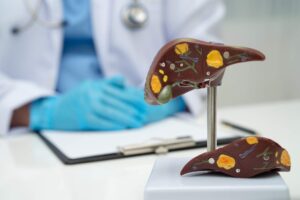Events, Video
Celine Druart, Executive Director at Pharmabiotic Research Institute, discusses the 10th Pharmabiotics Conference in Brussels, from microbiome biomarkers and One Health to key regulatory developments shaping live biotherapeutic products.
Video
Veronica Ojetti, gastroenterologist at San Carlo di Nancy Hospital (Italy), presents findings from a single-center pilot study assessing the effects of L. reuteri LMG P-27481 on the gut microbiota and…
Neuroscience
Future studies should have clearly defined hypotheses, adequate sample size, standardized protocols, and replication using multiple independent approaches.
Gastroenterology
Changes in gut bacteria raise a child’s chances of developing IBD later in life, offering clues to why the conditions sometimes runs in families.
Gastroenterology
Francesca Ponziani from Gemelli University Hospital (Italy) highlights how the gut microbiota can become a clinical tool for identifying and stratifying patients, clarifying pathogenic mechanisms, and opening up new therapeutic…
Oncology
Certain harmful microbes in the mouth appear to promote cancer development, while others might help protect against it.
Endocrinology
Researchers set up a clinical trial to study how glucocorticoids affected the gut microbiota, metabolism, and immunity in healthy young men.
Video, Gastroenterology
Federica Facciotti, from University of Milano Bicocca, focuses on how the gut microbiota interacts with immune activation, shaping both chronic inflammatory intestinal disorders and oncology, particularly colorectal cancer.
Gastroenterology
Gut bacteria help protect the liver by breaking down sorbitol, a sugar made from glucose in the gut.
Dentistry
The researchers created a microbial catalog, which they called HROM (human reference oral microbiome), containing 72,641 high-quality genomes from 3,426 species.











